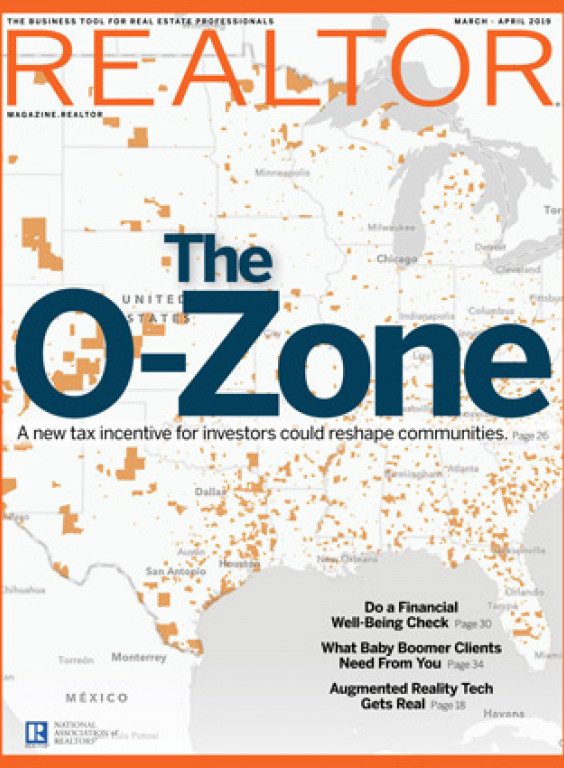When Nick Krautter was starting in real estate in 2006, he thought he was doing very well. “Then I had to write a check for my taxes. I had $50,000 saved, and [suddenly] I had $20,000.”
Krautter, an agent with Keller Williams Realty Portland Central in Portland, Ore., and author of The Golden Handoff: How to Buy and Sell a Real Estate Agent’s Business, knew he needed to do more than wing it with his finances.
And he needed not just a financial plan, but a road map for success—something that financial adviser Seth Weinstein, of The Weinstein Group-Northwestern Mutual in Portland, Ore., describes as “connecting what’s going on in your heart—your personal mission, values, and what your life plan is—to your money.”
Krautter, who works with Weinstein, came to realize that real estate pros face “the same issues as athletes and rock stars—good years and good months and bad years and bad months.” Taking charge of his own vision, he now runs a sales team, owns a number of investment properties, and has structured his business to maximize write-offs.
Your Dedicated Financial Planning Website
Krautter stands out among his REALTOR® peers for his financial preparedness. According to National Association of REALTORS® data, 43 percent of members aren’t saving for retirement and 42 percent feel unprepared for a financial emergency. Less than half of NAR members feel completely confident they can retire when they’re ready. Given these stats, in 2018 NAR launched the Center for REALTOR® Financial Wellness.
While it’s not a substitute for hiring a professional financial adviser, the online resource, available at FinancialWellness.realtor, helps members and association executives create their own financial road map, whatever their age and wherever they are in their career. You need only your NRDS ID number to access this member benefit. There you’ll find calculators, an interactive financial checkup tool, and information and tools on topics like business expense planning, investing, and succession planning. The site even lets you practice financial decision-making.
“Lots of [sources] make financial education complicated. The Center is very easy to understand,” says Monica Neubauer, an agent with Benchmark Realty in Franklin, Tenn., who has used the site. “It’s worded with questions that people have or should have about their financial situation and future.”
She particularly appreciates the way the site is organized, with questions in clickable boxes. Not only do they answer questions you have, she says, but they also lead you to subsequent questions you might not have thought of “because you don’t know what you don’t know.”
The Center, she notes, isn’t only for people just starting out. “I’m fairly well prepared [financially], but I enjoyed culling through the information and I love the tools and calculators.”
The program’s genesis was a presidential advisory group of REALTORS® convened in 2017 by then-NAR President William E. Brown to help members take charge of their financial lives. “We want to give people an idea of how much they’ll have to save and invest. And when they want to retire,” he said when the Center launched.
Chaired by NAR Past President Sharon Millett, the PAG’s main recommendation was engaging members on the importance of financial wellness and building wealth. NAR selected Bank of America Merrill Lynch to develop the program. So far, there are more than 5,000 site users.
The Common-sense Secrets of Financial Wellness
Financial wellness, as the Center defines it, is a measure of your overall personal well-being as it relates to your money. Adds Krautter: “It’s a step on the way to financial independence. You’re able to run your business and personal life without an undue amount of stress about having too much debt or not enough income.” To get there:
Build reserves. Make sure you have at least three months—ideally, one year—of living and operating expenses. “The more you have, the more competence it gives you to go out in the market and do things for people,” Weinstein says. “If you’re scared about your own bank account, it’s harder to offer the level of service needed [in this relationship business].”
Make it a habit. Saving and investing is like building a muscle. “Do something on some regular basis,” Weinstein says. “Even if it’s $20 a month, start there. And build on that.” He recommends setting up automatic transfers between accounts to force savings. “It may be painful for a few months, but generally it gets built into the budget like any other bill.”
Live below your means. Investing in yourself, might mean taking a pass on the fancy car, at least early in your career. But those choices “end up being freedom for the whole family,” Krautter says.
Don’t spin saving as a sacrifice in your mind. Instead, tie the work you need to do to realize your plan to an emotional anchor, and then it’ll be easier to do the work, Krautter says. If you say, “I need to save $50,000, but I don’t have a lot coming in to save,” that’s a big hurdle that offers little motivation. Instead, for example, “ask yourself how your life would change if you were able to buy a duplex that in 20 years you could sell or refinance so you could pay for your kids’ college so they’d leave college debt-free,” he says. “Don’t think of it as working harder, but rather you’re going to close more deals to help your kids.”
Budget. To project income, list all sources—commissions, referral fees, property management fees, and rent from properties you own. Use the past several quarters as reference to track market trends and figure what income goals to anticipate, recommends the Center for REALTOR® Financial Wellness. Then look at your last 12 months of expenses. Divide your expenses into categories such as fixed expenses, variable expenses, reserve funds, education, insurance, and retirement savings.
Tip: Download a free personal monthly budget template and business expense template at the site.
Speaking of expenses, consider ways to cut. “Real estate agents get sold advertising campaigns and leads to make our lives easier. But you can make [money] just by maintaining relationships and sending a newsletter with valuable information,” Krautter says.
Invest. Often your best investment is in your own business and in real estate, the asset you know best, Krautter says. Plus, the tax deductions and depreciation benefits for owning rental property are significant. If you can, he recommends saving up enough money each year to buy one rental property. (See this article for other investment vehicles.)
Be patient. An investment strategy doesn’t pay off overnight. For his first investment, Krautter bought a “crappy house on a busy street” because it was what he could afford. But he fixed it up, collected rent on it for 10 years, and sold it for a profit.
Keep your potential top of mind. You’re in a business that allows you to increase your income. People on salaries can’t make more. But you win or lose based on your efforts and energy, Krautter points out.
Remember that your book of business is an asset. Krautter, the author of a book on succession planning, says 99 percent of agents eventually walk away from their business when it’s time to move on because they think it’s not worth anything. But those relationships and that database are worth a lot. “It could mean referral income that allows you to retire earlier.”





